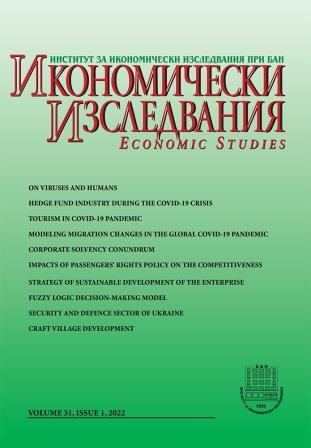The Performance of Hedge Fund Industry during the COVID-19 Crisis – Theoretical Characteristics and Empirical Aspects
The Performance of Hedge Fund Industry during the COVID-19 Crisis – Theoretical Characteristics and Empirical Aspects
Author(s): Alexander GanchevSubject(s): Economy, Financial Markets
Published by: Институт за икономически изследвания при Българска академия на науките
Keywords: hedge funds; investment strategies of hedge funds; portfolio performance; COVID-19
Summary/Abstract: The study reveals that the COVID-19 crisis has had a strong but one-off negative impact on the hedge fund industry. It also shows that during the new coronavirus pandemic, the main components of the hedge fund industry achieved only partially their main investment goal, i.e. they as a whole provided a hedge of the investment risk but did not produce higher than the market return in the conditions of a growing capital market. In this situation, due to the relatively stable М&A market, the Event-Driven Risk Arbitrage strategy was undoubtedly most successful, followed by the Emerging Markets, the Global Macro and the Long/Short Equity strategies. The worst performance was reported for the Fixed Income Arbitrage strategy due to the currently overvalued bond markets and to the expectations for higher inflation rates in the countries with developed capital markets.
Journal: Икономически изследвания
- Issue Year: 2022
- Issue No: 1
- Page Range: 18-37
- Page Count: 20
- Language: English

